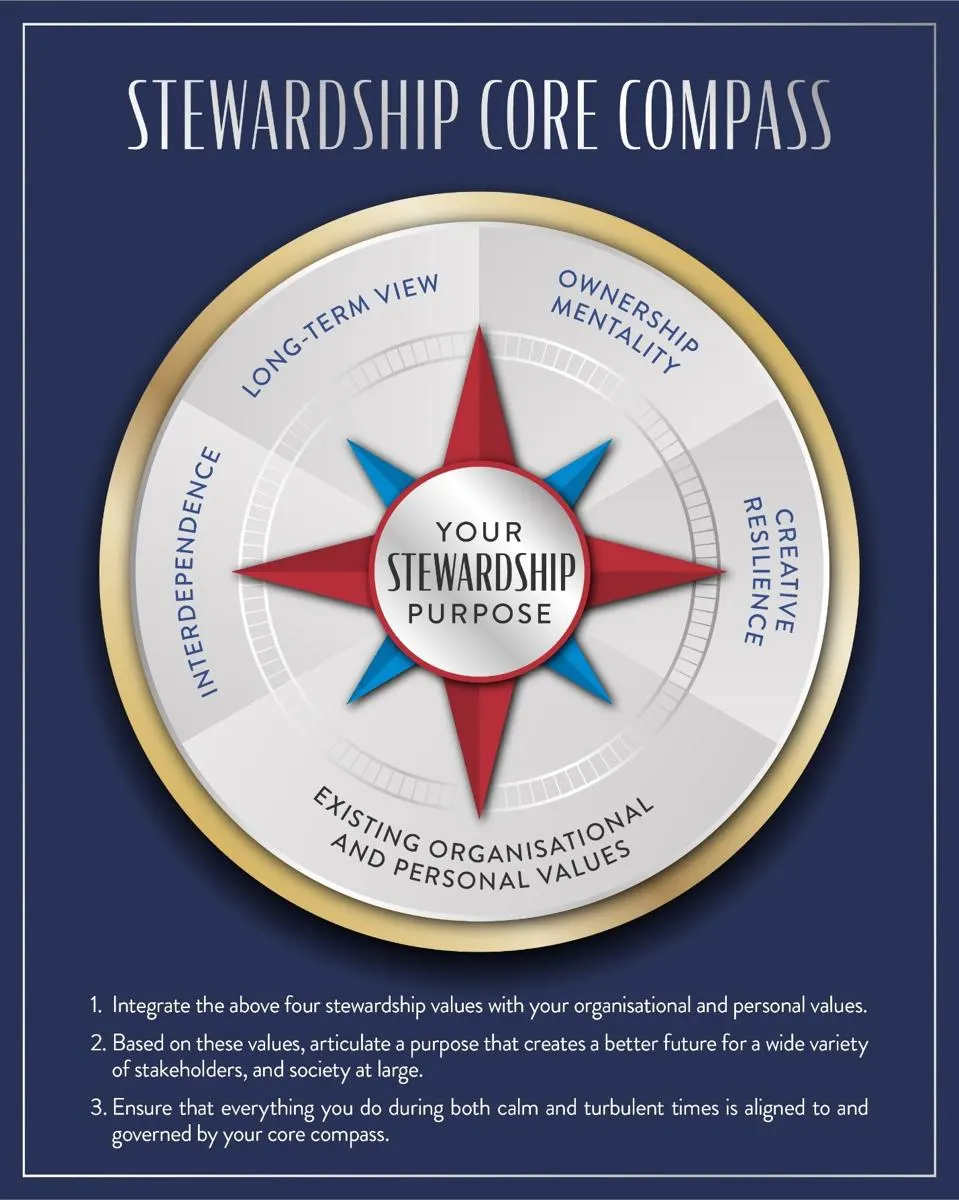
Mentoring is a familiar concept. We understand intuitively that it relates to sharing wisdom, insights, and skills with another person and encouraging them to grow and flourish. In the best of scenarios, we would all have a mentor, sometimes more than one, at some stage in our life. Many businesses have an official mentoring program. Mentors can be a life hack and a guiding light.
On a broader level though, mentorship as it applies to organisations and whole systems, can take the form of what we know as organisational or business stewardship. Organisational stewards look to the hearts and minds and wellbeing of their teams, the community and society at large. Organisational stewarding (differentiated here from the broader concept of stewarding) can be thought of as service leadership with a future-thinking lens. It’s concerned with long-term thinking that seeks to leave an organisation in a better place.
For businesses who are rich with organisational stewards, the horizon is bright. But if you find that to be more of an aspiration within your organisation, here are some ways to nurture a culture that enables business stewardship to thrive.
Setting Your Steward Leadership Core Compass
One model that can be useful in grounding in organisational/business stewardship is the Core Compass Model conceived by Rajeev Peshawaria, a former Chief Learning Officer of both Coca-Cola and Morgan Stanley. He believes that it’s important to set a personal leadership compass first, followed by an organisational compass. Our individual compass might look like this:

Image Source: Rajeev Peshawaria
Creative resilience
Because steward leaders are highly motivated to give something useful to the world through their work or business, they continually challenge themselves to innovate.
Stewardship Purpose
Steward leaders know how to articulate their purpose. As with their values, their purpose is greater than themselves and they seek to serve their team members in order to create a better future for a wide variety of stakeholders. The core difference between steward leaders and regular business leaders is the focus of their purpose.
Ownership Mentality
Peshawaria calls this attribute “ownership mentality”, however we like to think of it as stewardship mindset that focuses on “buy-in.” The steward leader has a keen sense of responsibility, which extends past the organisation and its impact, to keeping “the world’s human, social, and environmental capital intact.” Steward leaders “buy-in” to their roles and responsibilities wholeheartedly.
Long-term views
It stands to reason that as business stewards, we are long term thinkers who are able to see past short-term gains and are willing to hold back from quick gratification to achieve longer term more sustainable and regenerative goals. We are driven by a desire to make the world better for future generations and can think into that future space.
Interdependence
Business stewards by necessity are whole systems thinkers. They understand the interdependence that is inherent in a large system, and that any impact on part of the system has a ripple effect.
Setting the Organisational Compass
Once we’ve attained clarity around our personal compass, it is time to work as a team on our organisational compass. This begins with naming our values, including the four core stewardship values.
At this stage it’s important to identify those additional values through a stewardship lens, and then align our structures and processes to them. Peshawaria suggests that to activate the OS Core Compass, there are three processes that organisations must get right:
- Recruiting – this means including the same stewardship values in the set of characteristics you look for in new team members.
- Performance Management – KPI’s, for instance, need to be linked to all parts of the Core Compass and measure against values-based behaviour
- Rewards – celebrate and reward teams in alignment with values and purpose
Coming from the tradition of service leadership, organisational stewardship takes a wide lens approach that embraces distributed power, collective “buy in” to our responsibilities, and the aspiration to ensure our organisations are purpose and values led.
Need More Help?
Keen to find out more about organisational stewardship? Performance Frontiers help guide leaders re-imagine organisational purpose through the lens of service leadership. Speak to Gretel today about how we can partner with you to co-create what stewardship orientation might mean for how we think about organisations, how we lead, and the possibilities we can achieve.








